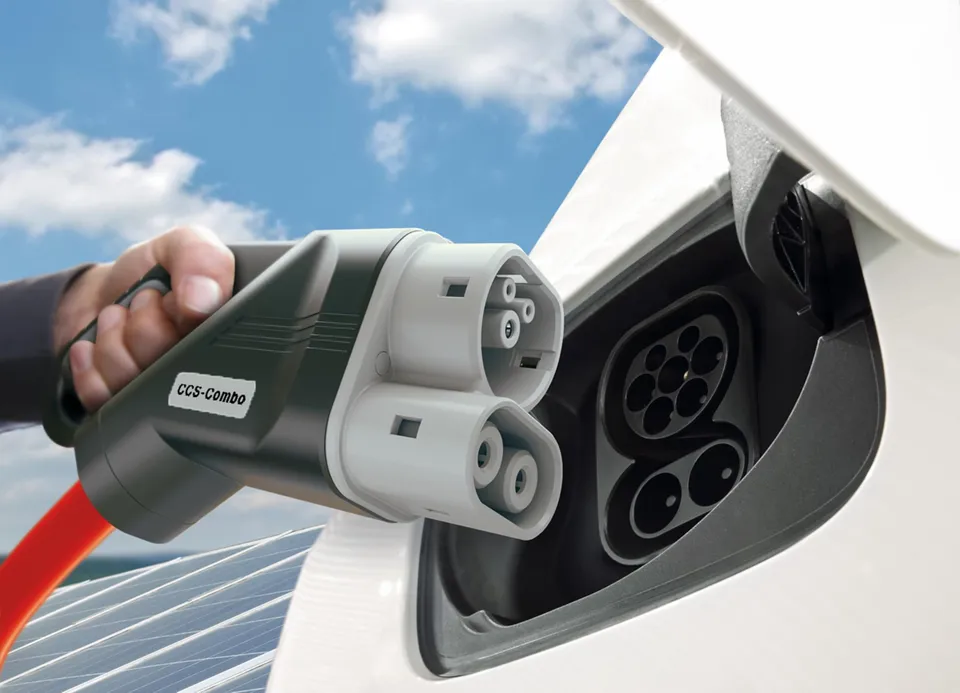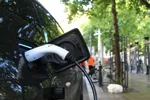The government has outlined plans for an outright ban on the sale of conventional petrol and diesel vehicles from 2040 as part of its Air Quality Plan for Nitrogen Dioxide.
The document, published by the Department for Environment, Food and Rural Affairs (DEFRA) will aim to force the shift to hybrid and zero-emissions vehicles as it bids to cut roadside emissions of NOx to meet stringent EU standards.
But car dealers’ hopes for a scrappage scheme to help usher motorists into newer, cleaner cars in the meantime have been put on hold to allow for further consultation.
Defra’s report said that evidence suggested a scrappage could be a poor use of taxpayer money, with motorists already able to upgrade their vehicles being the most likely beneficiaries.
Consultation on a scheme will be undertaken, however, with feedback expected to be gleaned from local authority’s research for their own air quality plans.
Local authorities are the focus of much of the clean air plan, with a requirement to produce a study of local air quality and a plan to reduce NOx levels, including charging zones or outright bans for certain vehicles.
The document states: “It is for local authorities to develop innovative local plans that will achieve statutory NO2 limit values within the shortest possible time.
“The UK government has identified Clean Air Zones that include charging as the measure it is able to model nationally which will achieve statutory NO2 limit values in towns and cities in the shortest possible time.”
In the short-term the government has committed £255m to an Implementation Fund, available to support local authorities to prepare their plans and deliver targeted action to improve air quality.
The funding will support the immediate work to conduct feasibility studies and develop and deliver local plans.
- Has your car dealership experienced a slump in sales or enquiries for diesel cars in recent months? Share your views in AM's latest survey here:
The decision to consult over a scrappage scheme follows mention in May’s draft proposals had included a "targeted" car scrappage scheme, albeit in technical documents supporting the main consultation paper.
The proposed scheme could have facilitated the replacement of 15,000 Euro 1-5 diesel cars and Euro 1-3 petrol cars with EVs in 2019 with the help of an £8,000 grant.
Mike Hawes, Society of Motor Manufacturers and Traders (SMMT), said an outright ban risks undermining the current market for new cars.
He said: “Much depends on the cost of these new technologies and how willing consumers are to adopt battery, plug in hybrid and hydrogen cars.
“We could undermine the UK’s successful automotive sector if we don’t allow enough time for the industry to adjust."
Dr Frederik Dahlmann, Warwick Business School assistant professor of global energy and researches the low carbon economy, said setting a clear long-term target provides industry with an indication over the direction of travel for how it should plan ahead.
Dahlmann said: "There is a good chance the market will have largely shifted towards EV vehicle before the deadline of 2040, other than specialist collector super cars and the classic car market."
However, Dahlmann said infrastructure investments would need to be adjusted to ensure a transition to EVs and hybrids is not “stopped in its tracks”.
Back in April the Department for Environment, Food and Rural Affairs (Defra) had lodged an application with the High to postpone publication of its draft clean air plan until after the general election.
Defra had argued publishing it now would breach ‘purdah’ rules limiting Government announcements with political implications during the election period.
After campaign groups lobbied against the plan, however, the High Court ordered the draft plans to be published on May 9, five days after the local elections, but before the general election on June 8, after deciding that purdah was a convention only and did not override legal obligations to clean up the air.
Final measures had to be made clear by 31 July.
















Edward Handley - 26/07/2017 16:11
An amazing and exciting announcement I don't think! Given that most of the current crop of Ministers, shadow Ministers and MPs will be long gone from Parliament by 2040, and that nothing a Government says now is binding on future Governments, this is nothing more than a puff of exhaust smoke. Electric car technology is moving fast and little straws in the wind suggest that a big breakthrough in battery technology is on the way, so the manufacturers may well have stopped making vehicles with internal combustion engines long before 2040, but it will be because the market has changed and there is no demand for them, not because the Minister announced anything in the summer silly season of 2017. If we still need cars and vans with petrol or diesel engines in 2040 you can guarantee they will still be available, because if 90% of cars and vans are electric the air quality problem will not be caused by cars and vans, it will because power stations, railway engines, construction plant, aircraft and ships are churning out toxic emissions, just like they are now. When the Minister says he is banning toxic emissions from power stations, etc., by 2040 as well we might be getting somewhere. In the meantime its just more fake news!